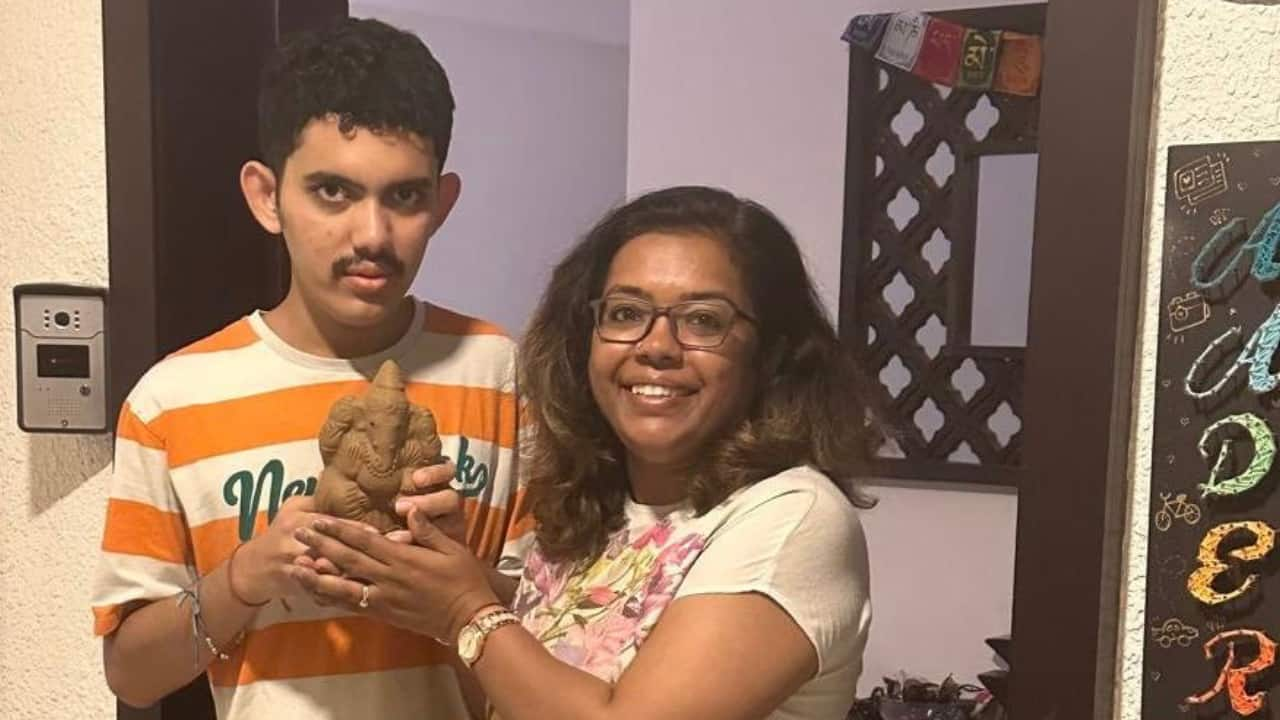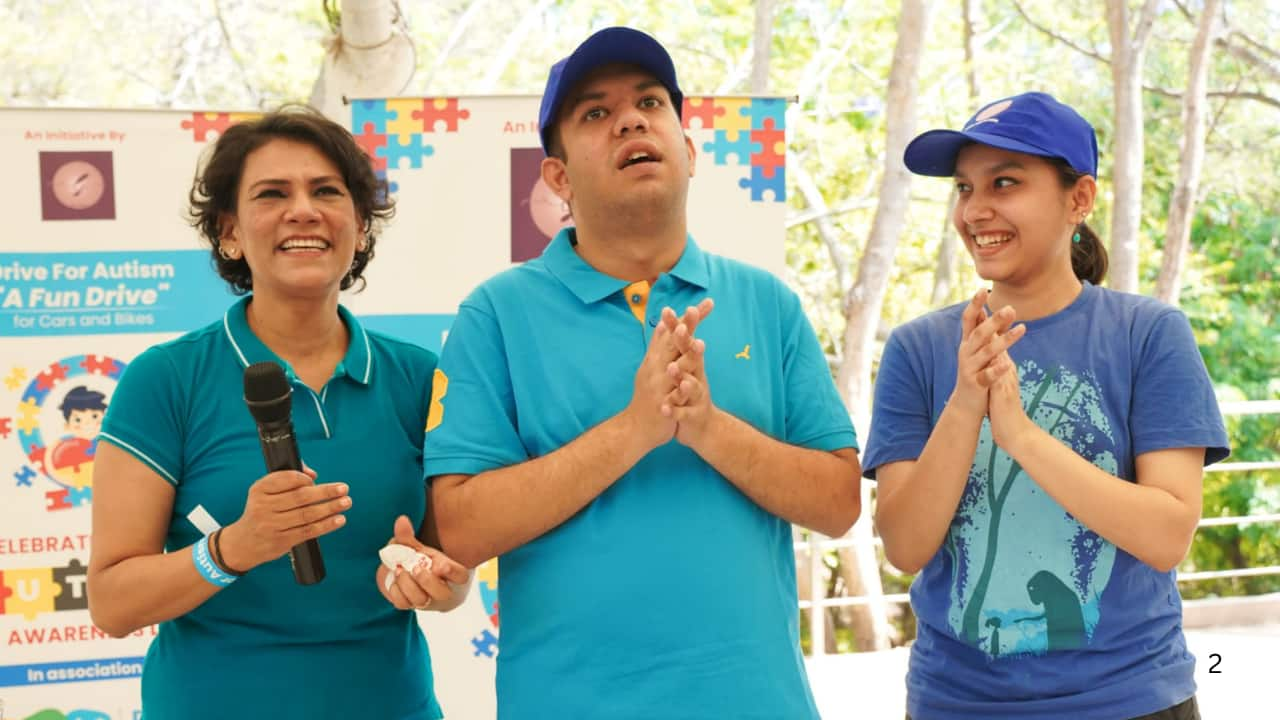



As the World Autism Awareness Day is celebrated globally, families across India share their deeply personal journeys of raising children with autism spectrum disorder (ASD) – a neurodevelopmental condition affecting communication, social interaction and behaviour. Their stories reveal both struggles and triumphs in navigating a world still learning to accept neurodiversity.
The parenting journey: From confusion to acceptanceFor Rashmi Shetty, CEO, Cohort Communicationz, Mumbai, mother to 20-year-old Aaditya, the early years were particularly difficult. "Back then there was no awareness about autism. We ran pillar to post till we broke down," she recalls. Her turning point came when she stopped fighting reality and built her support system – her "village" of family, therapists and specialists.
Milan Singh, a business professional in Indore, mother to 20-year-old Samar, also emphasises the communication challenges she faced with her son. "Samar didn't speak until he was 10-11 years old. He could recite poems but never called me 'Mama'," she shares. Through persistent efforts including constant verbal interaction and public exposure despite societal judgment, she helped Samar develop understanding and skills. Today, Milan runs an Instagram page (@thebiggishboy) on behalf of her son where she spreads awareness about autism to her ever-growing audience of more than 99k followers.
Similarly, Snigdha Pal, an entrepreneur based in Bengaluru, who is a single mother to 27-year-old Aditya, highlights how caregiving for him is a life-long responsibility. "It is beyond imagination...a lifetime responsibility financially, emotionally and physically." Yet she finds strength in his progress. "Despite the challenges, he has been my biggest teacher. His resilience, his pure-hearted love, and his small but significant victories remind me daily why I never gave up. He has shaped me into the woman I am today—stronger, more compassionate, and deeply grateful."
Understanding autismNeurologists explain ASD's spectrum nature. "ASD is a developmental disability that affects a child's communication, social interaction and understanding of the environment. It is termed a 'spectrum' because these symptoms differ in terms of their nature and intensity," says Neha Cadabams, senior psychologist at Cadabams Hospital.
Common symptoms include:1) Social communication difficulties
2) Repetitive behaviours and strict routines
3) Sensory sensitivities (to sound, light, texture)
4) Delayed developmental milestones
While causes remain unclear, experts highlight early intervention. "Therapies like applied behaviour analysis (ABA), speech and occupational therapy can significantly improve outcomes," notes Dr Sonam Kothari, pediatric neurologist, Butterfly Learnings.
 Rashmi Shetty with her son Aaditya.Breaking barriers: Challenges and coping mechanisms
Rashmi Shetty with her son Aaditya.Breaking barriers: Challenges and coping mechanismsParents reveal the daily realities:
Communication strugglesOne of the biggest challenges Maadhav Pal, a 5-year-old, who is brother of Shilpa Pal, a PR consultant based in Delhi, faces is hyperactivity and difficulty with social communication, especially with kids his age. "He also had a speech delay early on, which made it tough for him to express his needs. For instance, earlier when he needed to use the washroom, he would start jumping instead of telling us," Shilpa says, however over time, he has learnt to express his thoughts.
Societal judgmentEven after facing a lot of judgment, Milan never stopped taking her son to public places like gardens, restaurants and movies. "People would stare, and I often had to apologise because he didn't behave like other children," Milan says, adding, "He would eat from strangers' plates at restaurants, jump into fountains at posh hotels, or run into the street for a toy." But Milan didn't let societal pressure or shame stop her. "I just kept going, and eventually that made a difference."
Educational hurdlesFinding the right kind of schools, teachers who truly cared, and support systems that worked took continuous effort for Snigdha. At times, she had to fight for what her son Aditya deserved-whether it was extra support, the right learning environment or simply the space to be himself without being forced to 'fit in'. Eventually, she had to come to terms with herself that her son has to attend a special school. "I wanted him to grow up feeling loved, valued and capable of achieving what's best in his capacity," Snigdha shares.
Building support systems: Expert-recommended strategiesWhile autism is not curable at this time, Dr Arabindo Mukherjee, neurologist, CMRI Hospital, Kolkata, highlights intervention therapies and educational programs that allow individuals with autism to lead meaningful lives. "Specialised educational programs are tailored to support academic and social growth using a variety of learning methodologies," he says. "While there are no medications that will cure autism, there are medicines that help relieve the symptoms of anxiety, hyperactivity and aggression," Dr Mukherjee adds.
Apart from this, social skills training helps children with ASD learn and practice social skills. "Programmes like group therapy, peer interaction activities, and structured playgroups to teach skills like turn-taking, sharing and initiating conversations," Neha says.
The most important strategy is to build a community of like-minded people. "Connect with support groups, friends and family members to remember that you're not alone," urges Rashmi.
Also Read | Autism in children: Difficulty in communication, problems with basic tasks are warning signs Snigdha Pal with her son Aditya.Caregiver wellness
Snigdha Pal with her son Aditya.Caregiver wellness"Being a caregiver is exhausting, and burnout is definitely real," acknowledges Vaishali Goswami, mother to 6-year-old Aashvy. She says that caregivers of autistic children, need patience, understanding and self-care. "First, be flexible-what works today may not necessarily work tomorrow, so allow changes to come in. Create a gentler yet structured routine that offers security while allowing for the child's changing needs," Vaishali says.
Experts also emphasise the following tips for caregivers:1. Take regular breaks
2. Seek counselling
3. Maintain personal hobbies
4. Celebrate small victories
"When parents are happy, the child is happy," reminds Milan. "We need to stop asking 'Will he be normal?' and redefine what normal means," she asserts.
Also Read | Is autism a disease? Can it be cured? Bursting myths related to the neurodevelopmental disorderAs we observed World Autism Awareness Day, these stories remind us that beyond the challenges lies immense potential-waiting to be unlocked with understanding support and inclusive opportunities. The journey continues, but as Rashmi puts it, "Go forth with your army-this world is truly your oyster."
Disclaimer: This article, including health and fitness advice, only provides generic information. Don’t treat it as a substitute for qualified medical opinion. Always consult a specialist for specific health diagnosis.Discover the latest Business News, Sensex, and Nifty updates. Obtain Personal Finance insights, tax queries, and expert opinions on Moneycontrol or download the Moneycontrol App to stay updated!
Find the best of Al News in one place, specially curated for you every weekend.
Stay on top of the latest tech trends and biggest startup news.